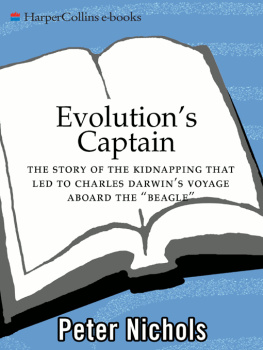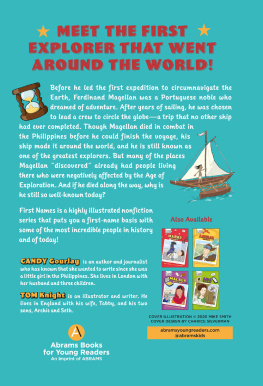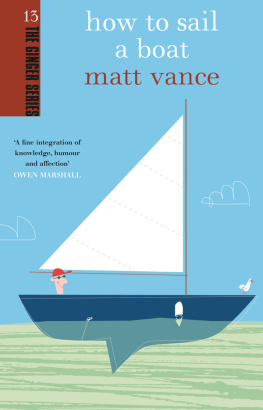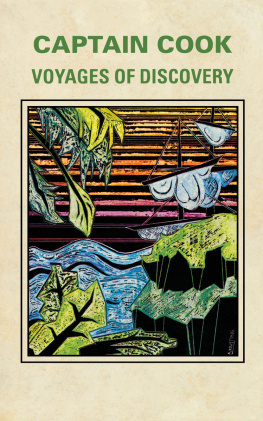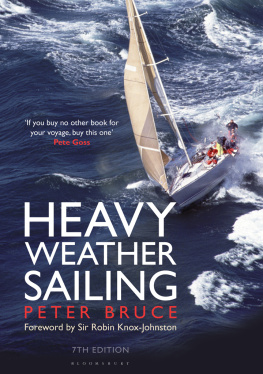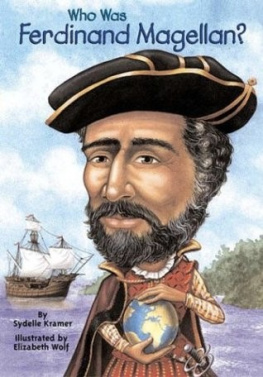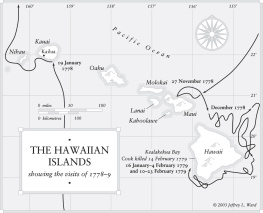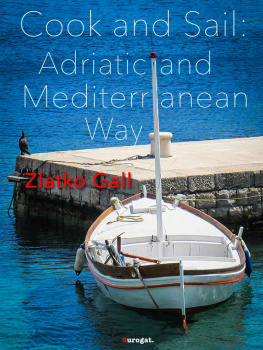As a carpenter purrs over perfect dovetailing, so I rejoiced in the craftsmanship of this book. Simon Barnes, The Times
What a fascinating book this is, a combination of Moby Dick and a Boys Own Adventure story and what an apt title. Beryl Bainbridge, Mail on Sunday
This is the one that people will read and pass on to friends, and the one that they will pass on safe in the knowledge that they will never get it back again. Danny Kelly, Judge, William Hill Sports Book of the Year
If you are new to Moitessier, Knox-Johnston, Crowhurst and the rest, it will grip you from start to finish. Libby Purves, Daily Mail
Nichols produce[s] an exciting story, salted with his own sea-going experience. Financial Times
the author sucks the reader into the story with ease, to the point where each mans fate becomes of the utmost importance
Scotland on Sunday
A classic. A must for would-be sailing adventurers Chay Blyth
An epic story of courage, heroism and utter madness. Bookseller
This story is by turns inspiring, terrifying and lyrical and combines elements of the best thrillers with a perceptive examination of what drives people to undertake adventures of this kind Books Magazine
I started the book after dinner (with Mozart on Radio 3) and read non-stop till sleepy time, then started again on Sunday morning and read non-stop to the finish at 11am (in bed). A great read indeed. Bravo. Richard Hooper, Chairman, Radio Authority
A compelling tale. Country Life
A cohesive, gripping sea saga [] Nichols chronicles this extraordinary endurance event with a novelists insight and sensitivity.
Yachting Monthly
An enthralling tale of human endeavour and courage in the face of adversity you dont need to know your spinnaker from your mainsail to enjoy this book. Tatler
Nichols succeeds brilliantly in conveying the destructive lure of the sea. Independent
In a world full of synthetic heroes, delve into this and enjoy the real thing. Evening Herald
A VOYAGE FOR MADMEN
Peter Nichols spent ten years at sea working as a professional yacht captain, living and cruising aboard his own small wooden sailboat, before turning to writing full time. He is the author of five critically acclaimed books of fiction and non-fiction. He has taught creative writing at Georgetown University in Washington DC and New York University in Paris. He divides his time between Europe and the United States.
ALSO BY PETER NICHOLS
Evolutions Captain
Sea Change: Alone Across the Atlantic in a Wooden Boat
Lodestar (a novel)
A VOYAGE FOR MADMEN
PETER NICHOLS

This edition published in Great Britain in 2011
Paperback edition first published in 2002
First published in Great Britain in 2001 by
Profile Books Ltd
3A Exmouth House
Pine Street
London ECIR OJH
www.profilebooks.com
First published in the United States in 2001 by
HarperCollinsPublishers
10 9 8 7 6 5 4 3 2 1
Copyright Peter Nichols 2001, 2002
Typeset in Sabon
Designed by Sarah Gubkin
Printed and bound in Great Britain by
Bookmarque Ltd, Croydon, Surrey
The moral right of the author has been asserted.
All rights reserved. Without limiting the rights under copyright reserved above, no part of this publication may be reproduced, stored or introduced into a retrieval system, or transmitted, in any form or by any means (electronic, mechanical, photocopying, recording or otherwise), without the prior written permission of both the copyright owner and the publisher of this book.
A CIP catalogue record for this book is available from the British Library.
ISBN 978 1 84668 443 2
ISBN 978 1 84765 466 3
For Marion and Jeric Strathallan
Everything can be found at sea,
according to the spirit of your quest.
- JOSEPH CONRAD
LIST OF CHARACTERS
The nine competitors in the Golden Globe race, and their boats, in order of departure:
JOHN RIDGWAY, 29, captain in the British Army. Rowed across the Atlantic with Chay Blyth in a 20-foot open boat in 1966. Departed Inishmore, Ireland, 1 June, 1968. Sloop English Rose IV, 30-foot-long twin-keeled fibreglass.
CHAY BLYTH, 27, former British Army sergeant. Ridgways transatlantic rowing partner. Departed Hamble 8 June. Sloop Dytiscus III, fibreglass, twin-keeled 30-footer, very similar to English Rose IV.
ROBIN KNOX-JOHNSTON, 28, British Merchant Marine captain. Departed Falmouth 14 June in the 32-foot-long ketch Suhaili, built of teak in India.
BERNARD MOITESSIER, 45, French sailor-author. Sailed with his wife nonstop from Tahiti to Spain, via Cape Horn, in 19656 aboard his 39-foot-long steel ketch Joshua. Departed Plymouth, Devon, 22 August aboard Joshua.
LOCK FOUGERON, 42, French, manager of a motorcycle company in Casablanca, Morocco. Friend of Moitessiers. Departed Plymouth 22 August in the 30-foot-long, gaff-rigged steel cutter, Captain Browne.
BILL KING, 57, farmer, former British Navy submarine commander. His 42-foot-long, junk-rigged, cold-moulded wood schooner, Galway Blazer II, was designed and built expressly for a nonstop circumnavigation, but not for a race. Departed Plymouth 24 August.
NIGEL TETLEY, 45, Royal Navy lieutenant commander. Sailed in his live-aboard home, a 40-foot-long, 22-foot-wide, plywood trimaran ketch, Victress. Departed Plymouth 16 September.
ALEX CAROZZO, 36, Italian single-hander who had previously sailed alone across the Pacific, in the 66-foot cold-moulded wooden ketch Gancia Americano built for the Golden Globe race. He sailed that is, he removed to a mooring at Cowes, Isle of Wight, to continue preparations on the final deadline date set by the race sponsor, the London Sunday Times: 31 October. He put to sea a week later.
DONALD CROWHURST, 36, English electronics engineer. His 40-foot-long, ketch-rigged, plywood trimaran, Teignmouth Electron, was a modified sister ship to Tetleys Victress. He too sailed on 31 October, within hours of the Sunday Times deadline.
INTRODUCTION
TOWARDS THE END OF THE 1960s, as Mankind closed in on its goal of voyaging to the moon, nine men set out in small sailboats to race each other around the watery earth, alone and without stopping. It had never been done before. Nobody knew if it could be.
It was dubbed by its eventual sponsor, the Sunday Times, the Golden Globe race. It was the historical progenitor of modern single-handed yacht racing, to which it bears almost no resemblance. Today, high-tech, multimillion-dollar, corporate-sponsored sailing machines race around the world in 100 days or less. Their captains talk by phone and send e-mail to their families and headquarters ashore. They receive weather maps and forecasts by fax. They navigate using the global positioning system (GPS), their locations determined by satellites and accurate to within yards. These positions are simultaneously transmitted to race organisers ashore. Todays racers cannot get lost or file false reports of progress. If they get into trouble, rescue aircraft can often reach their exact locations in a matter of
Next page

